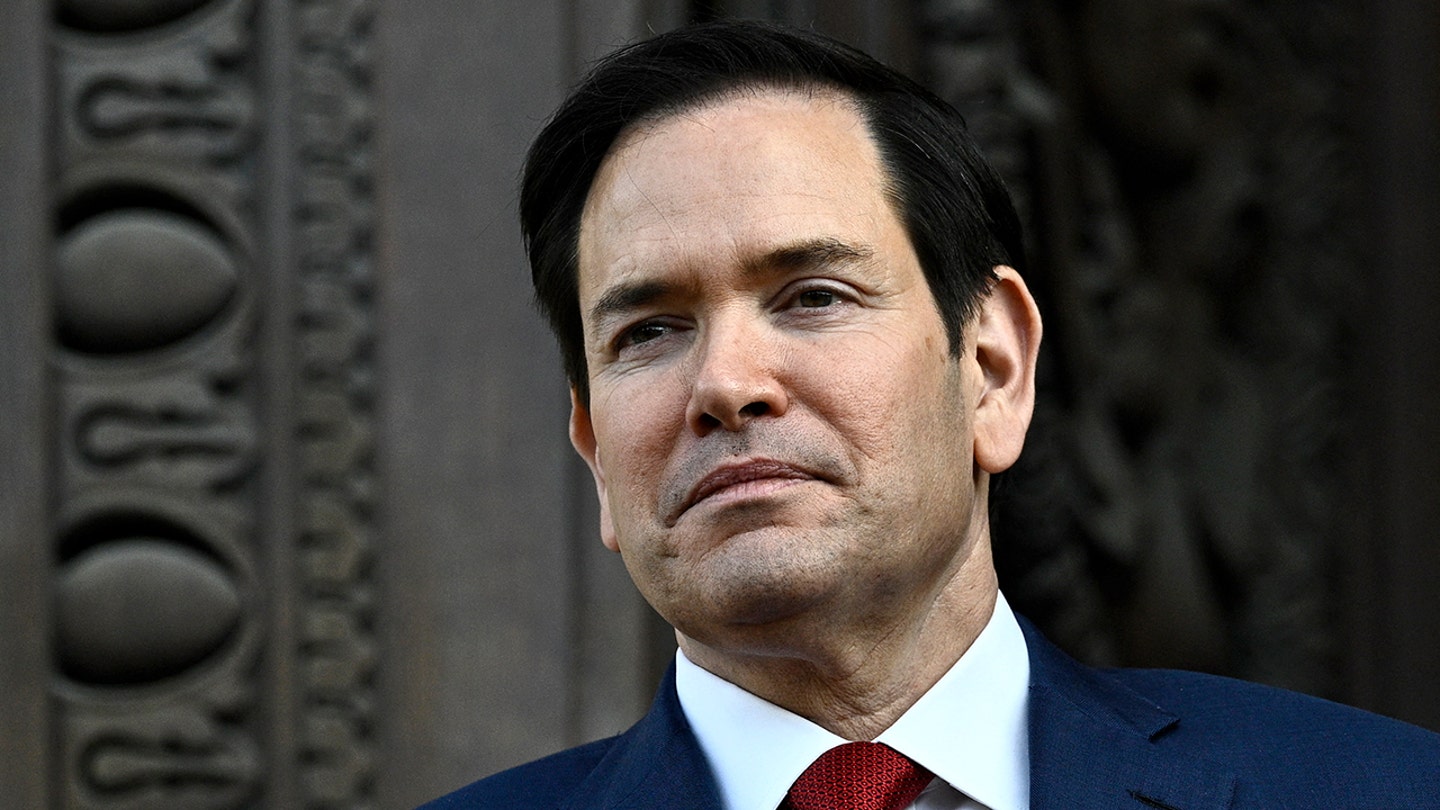
UFC legend Jorge Masvidal calls for Trump to take out Cuban dictatorship: 'Should have been done 60 years ago'
Entities mentioned:
- Jorge Masvidal: Righteousness, Justice, Freedom
- Donald Trump: Power, Control, Influence
- Ron DeSantis: Ambition, Control, Influence
- Communist Regime in Cuba: Control, Power, Self-preservation
Article Assessment:
Credibility Score: 65/100
Bias Rating: 75/100 (Lean Right)
Sentiment Score: 55/100
Authoritarianism Risk: 35/100 (Generally Democratic)
Bias Analysis:
The article leans right, heavily featuring conservative viewpoints and Trump-friendly narratives. It presents Masvidal's pro-Trump stance without significant counterbalance, indicating a right-leaning bias in source selection and framing.
Key metric: US Foreign Policy Effectiveness
Let me tell you something, folks - this is a HEAVYWEIGHT BOUT in the political arena! Jorge Masvidal, the UFC knockout artist, is stepping out of the Octagon and into the geopolitical ring, throwing haymakers at the Cuban regime! This guy's got the fire of a true champion, using his platform to go for the takedown on communism. It's like he's channeling that flying knee energy into a foreign policy offensive! Masvidal's calling for a full-court press on Cuba, pushing for Trump to execute a game-changing play that could rewrite the playbook on US-Cuba relations. This isn't just talk - it's fourth quarter, clock winding down, do-or-die strategy that could change the scoreboard for millions of Cubans. Masvidal's showing us that sometimes, you've got to take the fight outside the cage to make a real impact. He's not just fighting for a belt anymore, folks - he's fighting for freedom, and that's the ultimate championship!

Golf legend Greg Norman praises Trump for US action in Venezuela: 'I applaud it'
Entities mentioned:
- Greg Norman: Professional pride, Loyalty, Enthusiasm
- Donald Trump: Determination, Power, Justice
- Nicolás Maduro: Self-preservation, Power, Control
- United States: Security, Influence, Justice
Article Assessment:
Credibility Score: 65/100
Bias Rating: 75/100 (Lean Right)
Sentiment Score: 75/100
Authoritarianism Risk: 60/100 (Mixed/Neutral)
Bias Analysis:
The article leans right, featuring positive framing of Trump's actions and relying heavily on conservative sources. The presentation of the Venezuela operation as unequivocally positive without exploring potential controversies indicates right-leaning bias.
Key metric: US Foreign Policy Effectiveness
Let me tell you something - this story is HUGE! We're talking about a major power play in the Western Hemisphere, folks! The United States just stepped up to the plate and hit a grand slam in Venezuela! Trump's administration showed a championship mentality, executing a flawless fourth-quarter move that caught Maduro off guard. This is the kind of aggressive strategy that wins games and secures borders. Greg Norman, a true legend of the links, is cheering from the sidelines, recognizing the pure competitive spirit and determination behind this bold stroke. It's like watching a masterful golfer sink a clutch putt on the 18th hole to clinch victory. The US has flexed its muscles and shown it's still the MVP when it comes to hemispheric security. This is RIDICULOUS power on display, and I'm telling you right now, it's changing the game in South America!

House Democrats call on Rubio to allow injured children from Gaza into US following visa halt
Entities mentioned:
- House Democrats: Moral outrage, Justice, Compassion
- Trump administration: Security, Control, Wariness
- Marco Rubio: Security, Duty, Wariness
- State Department: Security, Control, Duty
- Hamas: Power, Control, Influence
- Israeli government: Security, Control, Self-preservation
Article Assessment:
Credibility Score: 75/100
Bias Rating: 40/100 (Lean Left)
Sentiment Score: 35/100
Authoritarianism Risk: 45/100 (Mixed/Neutral)
Bias Analysis:
The article leans slightly left, giving more space to Democratic concerns and humanitarian arguments. While it includes Rubio's perspective, it frames the visa halt more critically and emphasizes the potential negative impact on children needing medical care.
Key metric: US Foreign Policy Effectiveness
As a social scientist, I analyze that this article highlights a conflict between humanitarian concerns and national security interests in US foreign policy. The decision to halt visas for Gaza residents, including children needing medical care, demonstrates a prioritization of security concerns over humanitarian aid. This policy shift could impact the US's global image and its ability to balance hard and soft power in international relations. The congressional pushback indicates internal disagreement on the appropriate balance between security and humanitarian considerations, which could lead to policy adjustments. The situation also underscores the complex interplay between domestic politics, international relations, and humanitarian issues in US foreign policy decision-making.

Bakari Sellers to Republican: Name one threat Trump’s followed through on against Putin
Entities mentioned:
- Donald Trump: Power, Influence, Legacy
- Volodymyr Zelensky: Security, Duty, Unity
- Bakari Sellers: Moral outrage, Justice, Indignation
- MAGA supporters: Loyalty, Pride, Fear
Article Assessment:
Credibility Score: 65/100
Bias Rating: 35/100 (Lean Left)
Sentiment Score: 45/100
Authoritarianism Risk: 30/100 (Generally Democratic)
Bias Analysis:
The article leans slightly left, evidenced by its focus on criticism of Trump and MAGA supporters from a CNN commentator. However, it does present factual information about Trump's meeting with Zelensky, balancing the bias somewhat.
Key metric: US Foreign Policy Effectiveness
As a social scientist, I analyze that this article highlights the shifting dynamics in US foreign policy towards Ukraine and Russia. Trump's apparent openness to using US troops for Ukraine's security marks a potential departure from his previous stance, which could impact US-Russia relations and America's role in Eastern European conflicts. The criticism from Bakari Sellers points to perceived inconsistencies in the MAGA base's foreign policy views, suggesting potential political polarization on international intervention issues. This shift could affect the US's global standing and its ability to form consistent, long-term foreign policy strategies.

What polls show ahead of Friday’s Trump-Putin meeting
Entities mentioned:
- Donald Trump: Power, Influence, Legacy
- Vladimir Putin: Power, Control, Influence
- Americans: Security, Justice, Freedom
- Republicans: Loyalty, Security, Wariness
Article Assessment:
Credibility Score: 75/100
Bias Rating: 45/100 (Center)
Sentiment Score: 35/100
Authoritarianism Risk: 25/100 (Generally Democratic)
Bias Analysis:
The article presents data from multiple reputable polling sources and offers balanced commentary. While it focuses more on Republican shifts, it also provides overall American sentiment, maintaining a relatively centrist perspective.
Key metric: US Foreign Policy Effectiveness
As a social scientist, I analyze that this article highlights a significant shift in American public opinion, particularly among Republicans, regarding the Ukraine-Russia conflict. The data from multiple polls suggests an increasing hawkish stance towards Russia and greater support for Ukraine. This shift poses challenges for Trump's historically softer approach to Putin, potentially impacting US foreign policy effectiveness. The article indicates that Trump's recent criticism of Putin has somewhat aligned him with the changing Republican sentiment, but there remains skepticism about his ability to effectively manage the relationship with Russia. This evolving public opinion could pressure the administration to adopt a firmer stance against Russia, potentially influencing diplomatic strategies and international alliances.

As Trump’s deadline for Russia comes due, White House preps for possible summit with Putin
Entities mentioned:
- Donald Trump: Power, Control, Legacy
- Vladimir Putin: Power, Control, Self-preservation
- Volodymyr Zelensky: Self-preservation, Loyalty, Justice
- Steve Witkoff: Duty, Influence
- Xi Jinping: Power, Influence, Control
Article Assessment:
Credibility Score: 75/100
Bias Rating: 45/100 (Center)
Sentiment Score: 35/100
Authoritarianism Risk: 40/100 (Generally Democratic)
Bias Analysis:
The article presents multiple perspectives and quotes various sources, maintaining a relatively neutral stance. It balances reporting on Trump's actions with reactions from other involved parties, avoiding overtly partisan language.
Key metric: US Foreign Policy Effectiveness
As a social scientist, I analyze that this article highlights the complex interplay between diplomatic efforts and economic sanctions in US foreign policy towards Russia and the Ukraine conflict. Trump's approach oscillates between threatening sanctions and pursuing diplomatic engagement, reflecting a tension between punitive measures and dialogue. The potential summit with Putin, without preconditions involving Ukraine, suggests a prioritization of bilateral US-Russia relations over a multilateral approach to conflict resolution. This strategy risks alienating European allies and Ukraine, potentially undermining the united front against Russian aggression. The article also underscores the interconnectedness of global politics and economics, with India and China's energy imports from Russia complicating the sanctions strategy. The effectiveness of US foreign policy in this context depends on balancing multiple competing interests and maintaining credibility in both diplomatic and economic spheres.